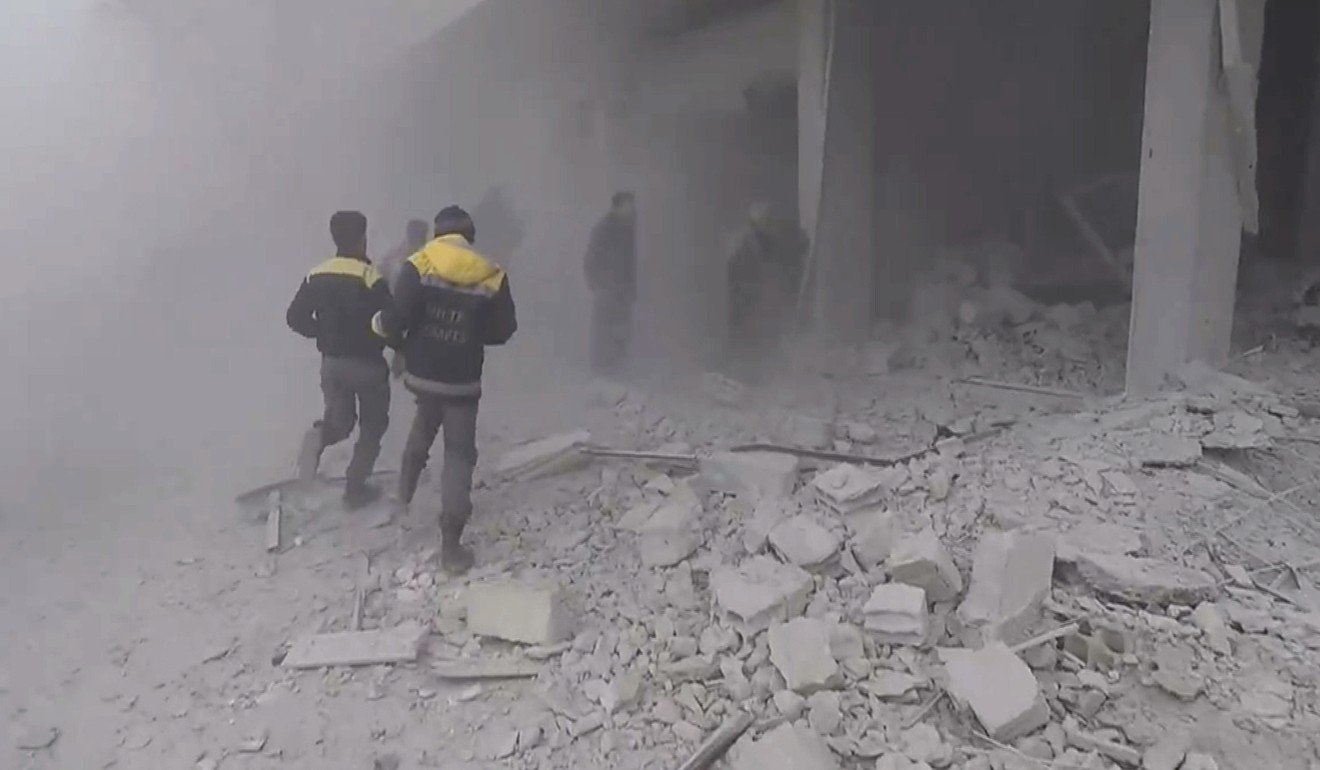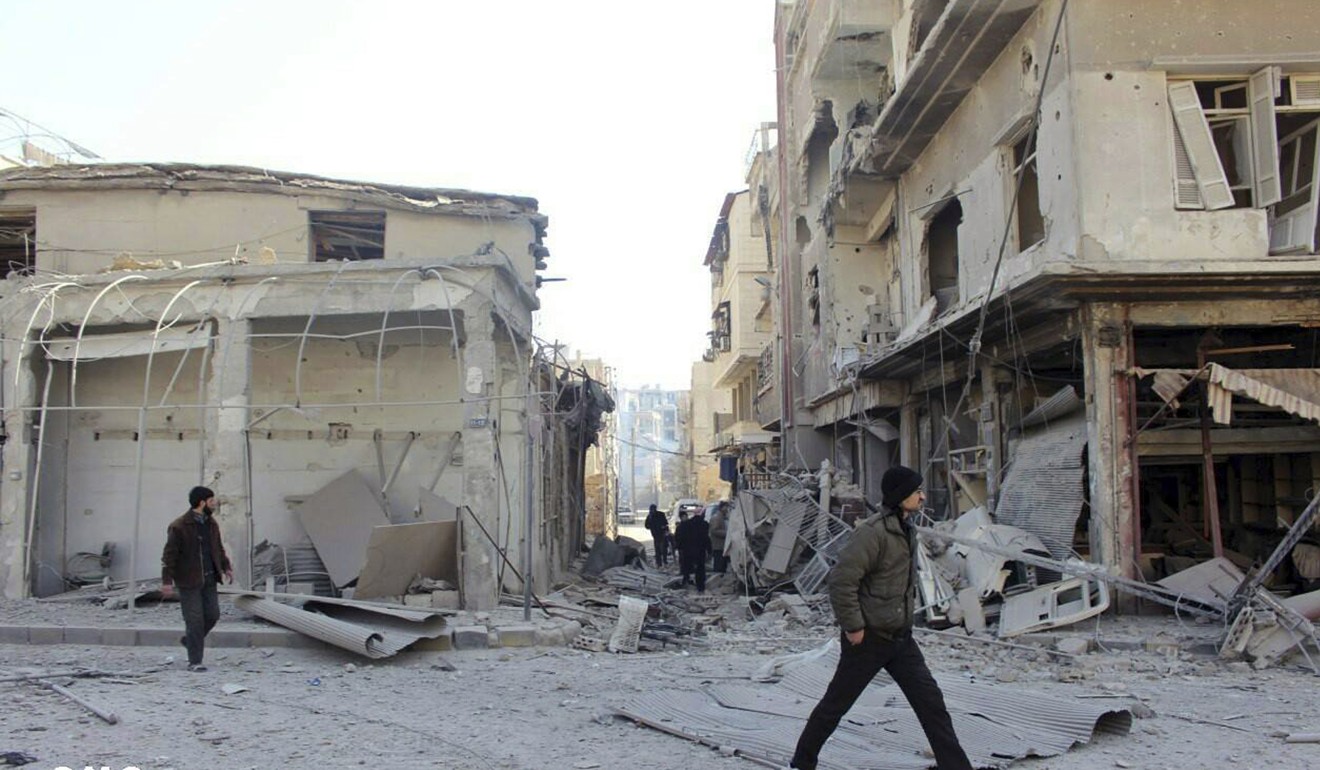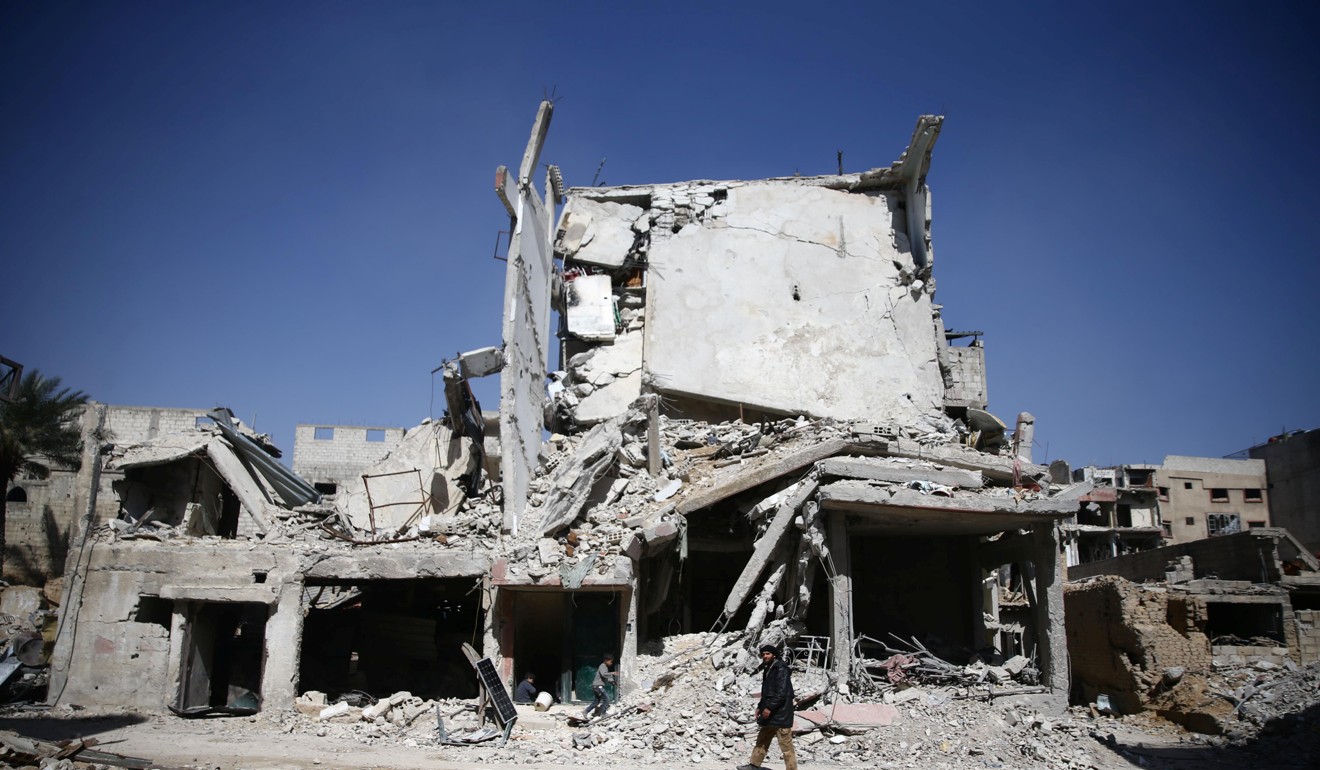
Fighting shakes Syrian enclave after army advances
Fighting rocked Syria’s Eastern Ghouta on Sunday as Western-backed rebels battled to retake territory seized in a devastating government assault on the last major opposition enclave near Damascus.
The Syrian military engaged in clashes with rebels in the eastern area of the enclave, the Syrian Observatory for Human Rights said, after advances in recent days that saw the government seize control of 10 per cent of the region.
Rami Abdel Rahman, the head of the Britain-based group, said at least 12 government fighters had been killed in two areas, Al-Rihan and Shifoniya, in overnight clashes with the Jaish al-Islam rebel group.

Jaish al-Islam shares control of rebel-held parts of Eastern Ghouta with Faylaq al-Rahman and Ahrar al-Sham. Damascus and Moscow say they are trying to clear the area of “terrorists”.
Hamza Bayraqdar, a spokesman for Jaish al-Islam, said on Twitter that the group’s forces had launched “surprise attacks” against government positions.
The Observatory, which relies on a network of sources on the ground to monitor Syria’s civil war, said rebels had retaken some parts of Shifoniya.
Witnesses in Eastern Ghouta said they saw hundreds of civilians on Sunday fleeing from the town of Beit Sawa in the southeast of the enclave.
The Observatory said some 2,000 civilians had fled government shelling and clashes in eastern parts of the enclave.
On Saturday, 18 civilians, including three children, were killed in government bombardment of Eastern Ghouta, according to the Observatory.

At least 76 pro-government fighters and 43 rebels from Jaish al-Islam have been killed in clashes since February 25, it said.
Encircled by government-controlled territory and unable or unwilling to flee, Eastern Ghouta’s 400,000 residents have in recent weeks suffered one of the most ferocious assaults of Syria’s civil war.
Under siege since 2013, they had already been facing severe shortages of food and medicine. The region’s overburdened medical workers have been struggling to cope with the rising number of wounded.
While falling short of a 30-day ceasefire demanded by the United Nations, the announcement by Russia of daily humanitarian pauses in fighting had raised hopes of some aid deliveries and evacuations.
But trucks loaded with aid have so far been unable to enter the enclave, according to the UN.
Moscow has offered safe passage to non-combatants wishing to leave during the pause, but no Syrian civilians have left since the first break in fighting on Tuesday, according to the Observatory.

The Russian military said no civilians exited via the established corridor on Saturday.
Damascus and Moscow say the rebels are preventing civilians from leaving.
The UN’s regional humanitarian coordinator for Syria, Panos Moumtzis, sounded the alarm on Sunday over the increase in violence.
“Instead of a much-needed reprieve, we continue to see more fighting, more death, and more disturbing reports of hunger and hospitals being bombed,” he said. “This collective punishment of civilians is simply unacceptable.”
As Syria’s conflict approaches its seventh anniversary, President Bashar al-Assad’s forces, heavily backed by Russia, have retaken most of the territory once lost to the US-supported rebels.
Eastern Ghouta remains one of the few areas outside their control, along with the northwestern province of Idlib which is partly controlled by al-Qaeda-linked extremists.

.png?itok=arIb17P0)